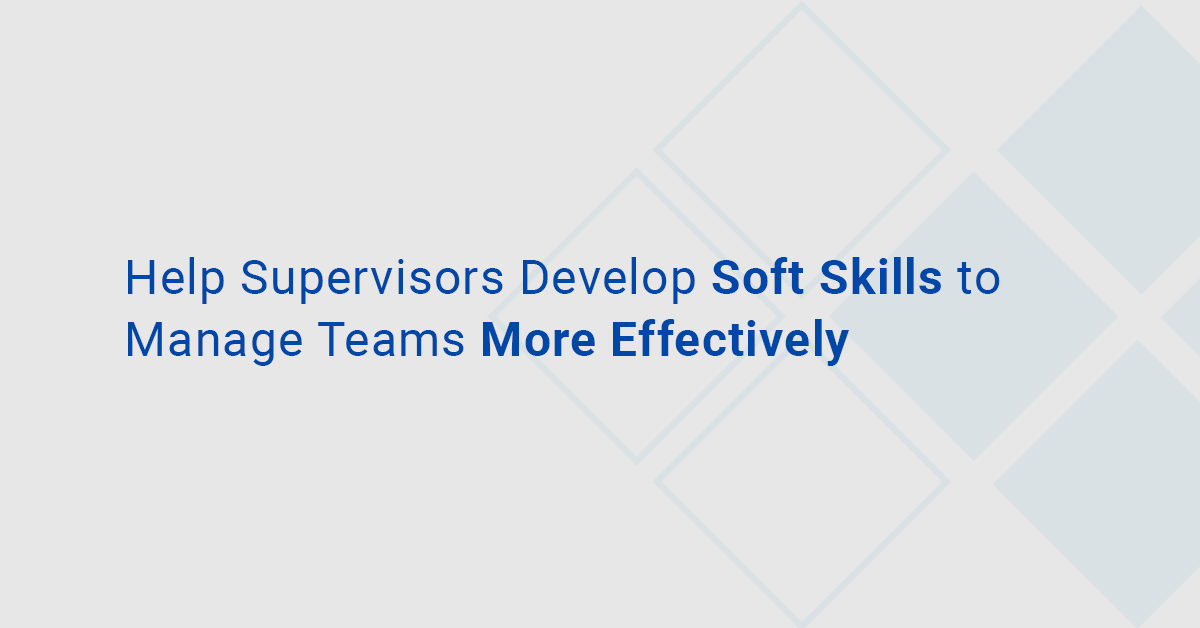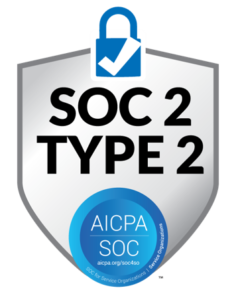Executive summary:
- New supervisors often lack the “soft skills” to manage teams effectively
- Give managers performance management training and tools
- An LMS provides real-time data and tools to guide a manager’s actions
The success of an organization and its employees depends on the effectiveness of its leaders. Unfortunately, frontline managers often lack the leadership and communication skills necessary to motivate, develop and manage their teams effectively. It’s critical for organizations to provide managers with leadership and performance management training and tools required to do their jobs effectively as part of a successful labor management program (LMP).
The “Soft Skills” Gap
Often, an individual’s promotion to the role of supervisor follows success as a warehouse production team member. While that person may be an expert in operational processes, they may lack the critical “soft skills” needed to successfully manage employees.
For example, a newly promoted supervisor who worked in the picking department might have been great at the picking process, but does he or she have the emotional intelligence and self-confidence required when discussing performance opportunities with a team member? Can they motivate employees? Can they deliver constructive criticism without lowering morale? While the elements of performance management include real-time production data and intra-day employee feedback, it is the ability to effectively communicate and lead that helps managers go from good to great.
The absence of these “soft skills” can significantly impact employee productivity and satisfaction and the organization’s ability to achieve desired outcomes. A supervisor who’s not comfortable discussing improvement opportunities with team members may do it poorly (or not at all). As a result, issues may never be addressed or the negative interaction may leave the supervisor and associate both feeling anxious about the situation, which can affect performance and the overall work environment.
Studies show this is a common problem within organizations. An Interact survey found that 69% of managers are often uncomfortable communicating with employees, and 37% said they’re uncomfortable having to give direct feedback regarding an employee’s performance that they may respond badly to.
But supervisor feedback and communication are critical to an employee’s productivity and retention. In fact, employees are three times more engaged when they feel supported by managers, and studies show between 50% and 75% of employees leave jobs because of their manager’s lack of support.
Effective leaders must be able to motivate and develop their employees in all situations. It often comes down to having the capability, self-confidence and assertiveness to execute those tasks when necessary.
Develop and Support Effective Leaders
Organizations need to give supervisors the support they need to communicate effectively and manage their teams at a high level. Here are four ways organizations can put supervisors in a position to succeed.
- Provide formalized training. Leadership and performance management training helps supervisors learn how to better communicate with and manage individuals to help make them productive, satisfied employees. Including role-playing exercises allows participants to practice the conversations they’re likely to have with associates so they feel confident when the time comes to have them for real.
- Enable managers with a tier-1 LMS. A robust labor management system (LMS) with business intelligence tools gives supervisors data and insights to guide their actions. It will not only tell them which individuals are struggling but will also provide insight into the root cause and how it should be corrected, whether it’s process-related and requires more coaching or a time management issue that can be addressed through proper communication. Access to real-time performance data also enables supervisors to provide immediate and accurate feedback to associates, resulting in higher employee morale and retention.
- Create a transparent work environment. Giving supervisors the skills and tools to best manage their teams is the first step, but organizations must position them for success by creating a transparent work environment that supports two-way communication between supervisors and associates. Ensure that everyone – from operations managers to hourly associates – understands what is expected and how they will be measured. Further supplement supervisor communication by sharing real-time performance data with employees using production boards so individuals know how they’re doing throughout the day.
- Select a good labor management partner. Software can be extremely beneficial, but these are people programs, so simply implementing software won’t guarantee success. Organizations need to equip managers with the right skills to act on the data to maximize the value of the LMS, including providing them with ongoing training and support. Find a partner who understands what good labor management looks like and provides leadership training in addition to robust software and engineering services.
The importance of helping supervisors and managers develop key leadership and communication skills cannot be overstated. Having great software, real-time data and lean processes are important to a successful labor management program, but those “soft skills” help everything come together and put them into action.
Learn how TZA’s leadership training gives managers the skills they need to better communicate, coach and counsel their associates, resulting in an engaged, high-performance culture with lower turnover.
Author: Andy Paulson, Senior Director, Customer Success Team
Related TZA Resources:


